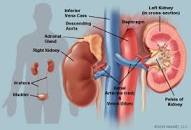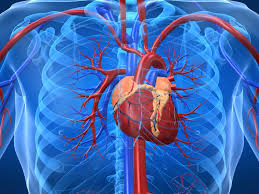
Recently Diagnosed or Relapsed? Stop Looking For a Miracle Cure, and Use Evidence-Based Therapies To Enhance Your Treatment and Prolong Your Remission
Multiple Myeloma an incurable disease, but I have spent the last 25 years in remission using a blend of conventional oncology and evidence-based nutrition, supplementation, and lifestyle therapies from peer-reviewed studies that your oncologist probably hasn't told you about.
Click the orange button to the right to learn more about what you can start doing today.
- You are here:
- Home »
- Blog »
- Multiple Myeloma »
- Multiple Myeloma Treatment- Very Slow Responder…
Multiple Myeloma Treatment- Very Slow Responder…

The challenge for those newly diagnosed Multiple Myeloma patients that achieve remission is that the toxicity of those therapies can cause life-threatening side effects to the patient’s blood, bones, kidneys, and heart…
Hi David- My mom is 74 and was diagnosed with multiple myeloma in March. She had CYBORD CYCLE, then CYTOXAN, switched to REVLIMID in April. She discontinued REVLIMID in May because Kappa chain increased. In July she began Darzelex and Velcade.
We did bone marrow biopsy and showed only 10% improvement .
In July my mom started DARZALEX, KYPROLIS, and POMELYST, 3 times a week , she almost had congestive heart failure because the KYPROLIS was not tolerated well.
As of September/18/20 she started VELCADE, DARZALEX and continue 2 mg POMELYST 3 times a week and have seen some improvement.
My mom has been getting chemotherapy EVERY SINGLE FRIDAY since March and I’m very very worried about her.
She is a very slow responder what is your suggestion? After the KYPROLIS cycle she developed headache, high blood pressure, and high phosphorus in her body.
Kidney condition is stage 5 CKD. I appreciate and am open to your suggestions.
Hi Sally-
I am sorry to learn of your mom’s MM diagnosis as well as her therapy challenges. You put is well when you said “she is a very slow responder.”
My thinking, my suggestions are based on the idea that your mom is a “very slow responder.”
When I say this, I am drawing on the basic thinking, the basic therapy approach of conventional oncology. Which is to take a “maximum tolerated approach” to chemotherapy. See the study linked below.
The reason why this approach, in my experience, is counterproductive for your mom is that
- MM sometimes just doesn’t respond to aggressive doses of chemotherapy regimens-
- chemotherapy can cause real damage to the patient’s heart and kidneys-
The solution, again in my opinion, is to integrate chemotherapy with those non-toxic therapies that have been shown to
- be apoptotic to MM
- reduce the toxicity of chemo
- protect organ function
If you are wondering why your oncologist didn’t mention integrative therapies, I will guess that it is because I am citing non-conventional therapies.
Therapies that have not been studied and approved by the FDA. Conventional oncology prescribes only therapies studied and approved by the FDA.
My experience is that MM patients like your mom may not respond well to aggressive chemotherapy regimens. While integrative therapies are not researched by conventional oncology, the fact remains that this approach may something to consider.
To Learn More about Partial, Stable, Progressive Response to Myeloma Treatment- click now
Let me know if you have any questions.
Hang in there,
David Emerson
- MM Survivor
- MM Cancer Coach
- Director PeopleBeatingCancer
Recommended Reading:
- Cancer Coaching Testimonials- PeopleBeatingCancer
- Multiple Myeloma Chemotherapy – Antioxidants Enhance Action
- Multiple Myeloma Side Effects- CoQ10 Prevents Chemo Cardiotoxicity
Why maximum tolerated dose?
“However, clinicians often prescribe up to maximum tolerated dose (MTD), especially when treating acute and more severe disease, without evidence to show that MTD is more likely to improve outcomes…
CONCLUSION
Higher drug doses may be necessary in acute or severe illness but, when patients are stable, lower doses often suffice to ensure effective maintenance treatment, tolerability, minimisation of adverse effects and long‐term adherence. MTD as established in drug development prior to human clinical trials appears likely to come with unacceptable risks and little gain if used as a clinical dosing strategy. MTD is not justified in prevention where any adverse effects may be unacceptable.
Without reliable evidence of the optimal population dose with respect to clinical outcomes and survival, clinicians may be left with limited guidance for managing patients.
Mean population ED50 may be a reasonable starting dose, with due allowance for body size. The dose can be increased above ED50 if greater efficacy can be demonstrated and lowered should ADRs develop. In most illness, there is merit in maintaining patients on the lowest effective dose, with close clinical monitoring for efficacy, tolerability and adverse events.”
Multiple Myeloma- Black Seed Oil, TQ- Kill MM, Pro Bone, Kidney, Heart-
“Our results show that TQ inhibited the proliferation of MM cells irrespective of their sensitivity to doxorubicin, melphalan or bortezomib… Daily dosing with 3% thymoquinone was successful in reducing blood pressure in healthy adults.”
The challenge for those newly diagnosed Multiple Myeloma patients that achieve remission is that the toxicity of those therapies can cause life-threatening side effects to the patient’s blood, bones, kidneys, and heart…
Curcumin- Kills MM, Integrative, Protective Therapy
“Unfortunately, if you are not the average patient or if you have relapsed aka no longer in your first remission, standard-of-care MM therapies can be:
- Too much toxicity
- Cause organ damage
- Become refractory- no longer kill your MM
Let me be more specific.
- Too much toxicity-
If you have been diagnosed with pre-MM or early stage MM- a single plasmycytoma of bone, MGUS or SMM, undergoing SOC therapy will often reduce your quality of life (think short, long-term and late stage side effects) and speed you toward multi-drug resistance (MDR).
2. Cause organ damage (please see footnotes 9-13 below)
- Toxic chemotherapy damages the human body. This is understood by oncology.
- Multiple rounds of chemotherapy weakens and eventually can kill the MM survivor.
- The most common MM symptoms are the same as the most common chemo side effects which are the most common causes of death-
3. Become refractory– no longer kill your MM
All chemotherapy regimens eventually stop working. Oncology knows this.
What is the NDMM patient or relapsed MM survivor supposed to do? What is your solution? The solution to too much toxicity is to not undergo toxic therapies and to undergo therapies such as anti-angiogenic nutrition, supplementation and lifestyle therapies that have been shown to fight MM.
Curcumin is non-toxic.
The solution to the prospect of organ damage is to take one or more supplements that research has shown will protect organs.
Curcumin protects organs.
The solution to your MM becoming refractor or resistant to chemotherapy is to add evidence-based, integrative therapy to your chemotherapy regimens.
Curcumin integrates with thalidomide, revlimid, velcade, and more.”


